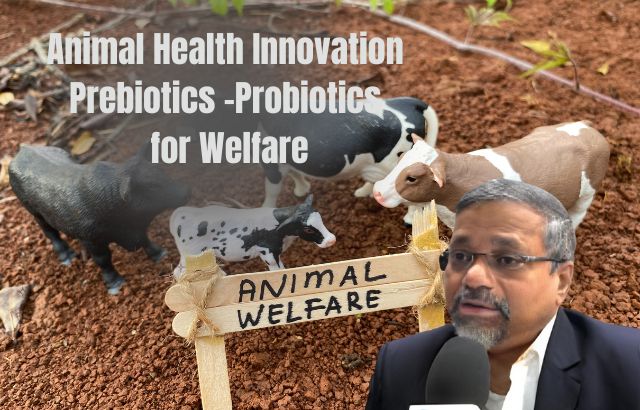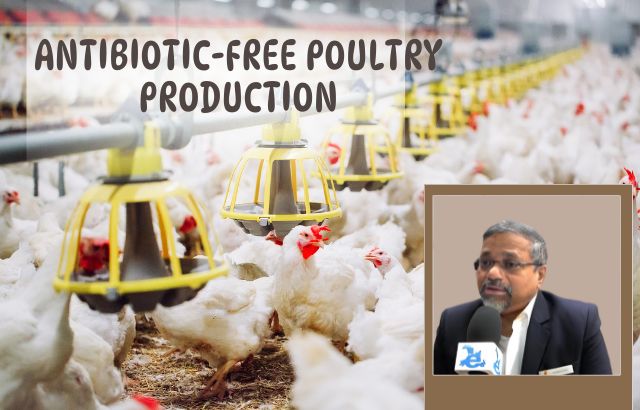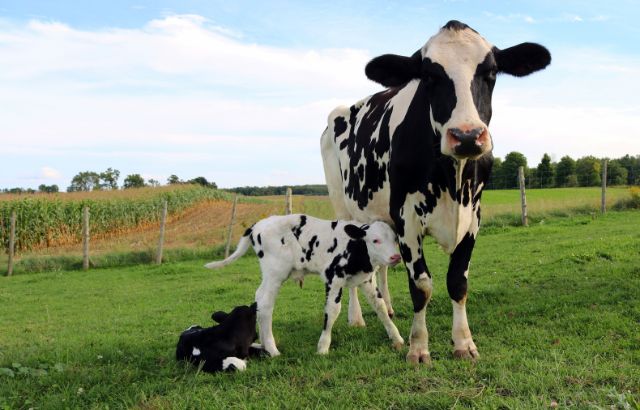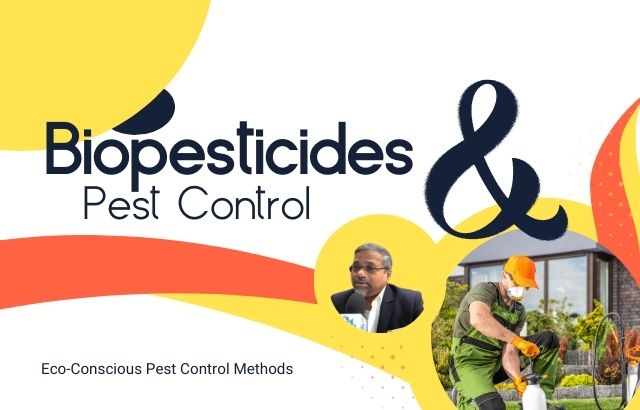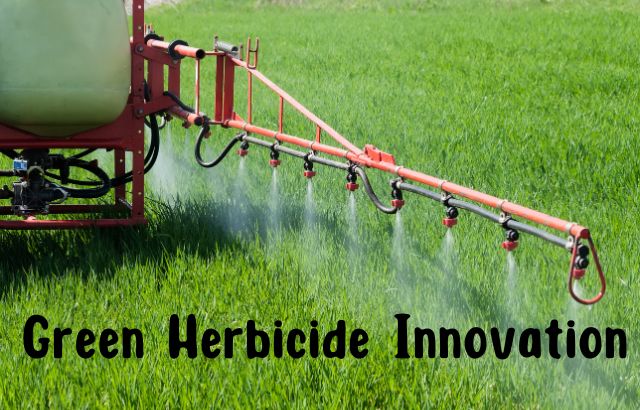Table of Contents
ToggleIn the modern world, animal health and welfare are paramount concerns for farmers, pet owners, and the agriculture industry as a whole. With increasing awareness of the environmental impact of traditional farming practices and the need to reduce reliance on antibiotics, there is a growing interest in natural alternatives. One such innovation is the use of prebiotics and probiotics, beneficial bacteria that can improve gut health, digestion, and nutrient absorption in animals. These beneficial microorganisms not only enhance animal well-being but also offer sustainable solutions for better animal care, with a strong focus on reducing environmental impact.
What Are Prebiotics and Probiotics?
Probiotics are live beneficial bacteria that, when consumed in adequate amounts, offer health benefits to the host (the animal). These microorganisms help to balance the gut microbiota, promoting healthy digestion, improving nutrient absorption, and boosting the immune system.
Prebiotics, on the other hand, are non-digestible food ingredients that stimulate the growth and activity of beneficial bacteria already present in the gut. Prebiotics act as a food source for probiotics, helping them flourish and do their work more effectively.
When combined, prebiotics and probiotics form a powerful duo that can significantly improve gut health and overall animal welfare.
Benefits of Prebiotics and Probiotics in Animals:
- Improved Digestion and Nutrient Absorption
Both prebiotics and probiotics help balance the gut microbiota, enhancing the digestion of food and allowing animals to absorb more nutrients efficiently. - Increased Immunity
A healthy gut is closely linked to a strong immune system. By supporting beneficial bacteria, these supplements help animals resist diseases and infections, reducing the need for antibiotics. - Reduced Antibiotic Use
Probiotics can reduce the need for antibiotics by maintaining gut health and preventing infections. This can lead to healthier animals and reduce the risks of antibiotic resistance, a significant global issue. - Improved Welfare
Healthier animals are happier animals. By improving gut health, animals experience less discomfort from digestive issues, leading to better overall welfare.
Examples of Domesticated Animals Benefiting from Prebiotics and Probiotics
- Cattle
In dairy and beef cattle, prebiotics and probiotics can aid in improving milk production, boosting digestion, and preventing common issues like bloat and colic. These animals greatly benefit from enhanced immune systems, leading to healthier herds. - Pigs
For pigs, probiotics support gut health and reduce the occurrence of gastrointestinal diseases, leading to better growth rates, improved feed conversion, and enhanced welfare. Prebiotics also promote gut flora balance. - Chickens
Poultry, especially in egg-laying hens, benefit from probiotics that improve gut health, increase egg production, and reduce mortality rates. Prebiotics also support the growth of good bacteria and help prevent intestinal diseases. - Sheep and Goats
Sheep and goats, like cattle, benefit from probiotics that improve digestion and nutrient absorption, which is essential for their growth and health. Prebiotics can also enhance their immune response. - Pets (Dogs and Cats)
Dogs and cats, especially those with digestive sensitivities, can benefit from probiotics to improve digestion, enhance nutrient absorption, and support immune function. Prebiotics can also support overall gut health in pets.
Roles of Green Innovators in Animal Health and Welfare

Green Innovators are key players in developing and promoting sustainable solutions for animal care. In the context of prebiotics and probiotics, green innovators focus on creating and implementing natural, environmentally friendly products that improve animal health and welfare.
- Development of Sustainable Supplements
Green innovators are at the forefront of developing plant-based prebiotics and probiotics from natural sources such as fermented foods, herbs, and organic materials. These products are not only effective but also reduce the environmental impact of production. - Research and Education
Green innovators actively research the benefits of probiotics and prebiotics in animal health. Their work helps to establish new standards in animal care, ensuring that animals receive the most beneficial and natural treatments. They also educate farmers and pet owners on how to incorporate these natural solutions into daily practices. - Reduction of Environmental Footprint
By promoting the use of probiotics and prebiotics, green innovators help reduce the need for antibiotics and synthetic additives, which can have a detrimental effect on the environment. Their efforts support sustainable agricultural practices and a reduction in chemical pollution. - Innovation in Animal Feed
Green innovators are also focusing on developing animal feed that incorporates prebiotics and probiotics. These innovations not only support animal health but also enhance the nutritional value of the feed, leading to healthier livestock and more sustainable food production.
FAQs: Prebiotics and Probiotics in Animal Health
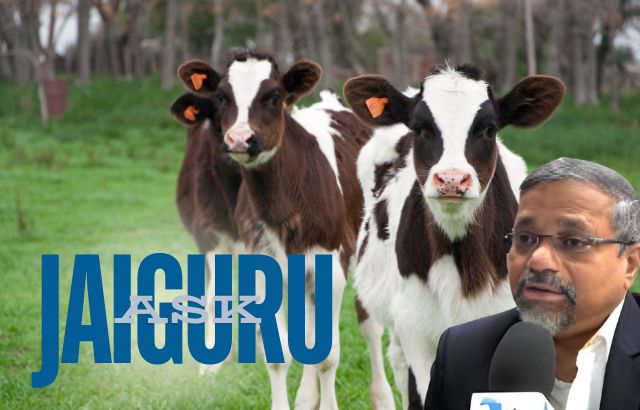
Q: Can probiotics replace antibiotics in animal farming?
A: Probiotics can help reduce the need for antibiotics by promoting gut health and preventing infections. While they are not a complete replacement for antibiotics in all cases, they can significantly reduce the use of antibiotics, particularly in preventing digestive diseases.
Q: Are prebiotics safe for all types of animals?
A: Yes, prebiotics are generally safe for all types of animals, including livestock and pets. However, it’s important to follow recommended dosages and consult a veterinarian when introducing new supplements.
Q: How long does it take to see results from probiotics in animals?
A: Results vary depending on the animal’s health condition and diet. Typically, noticeable improvements in digestion, immunity, and overall well-being can be seen within a few weeks to a couple of months.
Q: Can probiotics help with specific health problems in pets?
A: Yes, probiotics can aid in a range of digestive issues in pets, including diarrhea, constipation, and irritable bowel syndrome. They can also help manage allergies and improve skin and coat condition by supporting overall immune function.
Q: Are there any environmental benefits to using prebiotics and probiotics in animals?
A: Yes, by reducing the need for antibiotics and synthetic chemicals, prebiotics and probiotics contribute to more sustainable farming practices. They also help in lowering the carbon footprint of livestock production by promoting better feed efficiency and reducing waste.
Green Innovator’s Calculations: Impact on Animal Health and Environment
As part of their commitment to sustainability, green innovators use calculations to measure the impact of prebiotics and probiotics on animal health and environmental benefits:
- Reduction in Antibiotic Use
By replacing antibiotics with probiotics, a farm can reduce antibiotic usage by up to 40-50%, significantly cutting down on the risks of antibiotic resistance. - Improved Feed Conversion
Probiotics can improve feed conversion ratios by 5-10%, meaning animals can gain weight faster and more efficiently, leading to reduced feed waste and lower production costs. - Lower Carbon Footprint
Studies show that using probiotics and prebiotics in livestock can reduce greenhouse gas emissions by up to 20% by improving digestion and reducing methane production from livestock. - Fewer Veterinary Costs
Probiotics can reduce the frequency of veterinary visits by 25-30% due to fewer gastrointestinal issues and better overall health, leading to cost savings for farmers and pet owners alike.
Conclusion: A Greener Future for Animal Health and Welfare
Prebiotics and probiotics represent a promising innovation in animal health, offering sustainable solutions that improve digestion, immunity, and overall well-being while reducing the need for antibiotics and synthetic chemicals. With the support of green innovators, these solutions not only improve animal welfare but also contribute to environmental sustainability. By embracing natural alternatives, farmers, pet owners, and the industry as a whole can make a significant positive impact on both animal health and the planet.

